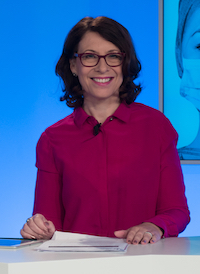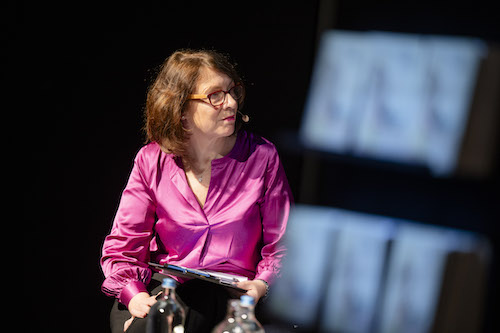By Claire Doole, www.doolecommunications.com
Someone asked me this week to explain the role of a panel moderator.
I replied that it was to facilitate an insightful discussion for the audience. Remember them? The most neglected part of an event except when organisers panic the room might not be full.
Unfortunately, engaging debates are sometimes very difficult to achieve when you are brought in at the last moment and the panelists have already been selected by the organisers for political or PR reasons. It is like trying to bake a great cake with the wrong ingredients.
Drawing on decades of experience and a lot of patience, I usually manage after speaking individually to each panelist to construct a flow and exchange between the panelists, that is engaging and insightful. Of course, the discussion is compromised in terms of depth as I have to loop in people who either don’t want to address the theme of the panel or don’t have the knowledge to do so.
There seems to be a view by some organisations - the more panelists the merrier, as this shows how well-connected and influential, they are. However, this leads to frustration all around – from the panelists themselves, who have less time to get their points across, from the moderator who has to keep the discussion at a relatively high level and the audience, who most probably have learned nothing they don’t already know.
Of course, some audiences also just want to say they have attended a conference and don’t care what was said. But many I speak to say they don’t like self- promotional panels where the speakers only talk about their organization and don’t engage with the theme of the panel. This may be the reason why organisers tell me audience numbers are down for both in-person and online events.
In my view less is more. Conference organisers should spend their time organising insightful audience-centric events where they involve the panel moderator from the start of the process.
Most professional moderators, like myself, have a broadcasting background. For many years I produced, presented, and edited programmes on BBC radio and TV. We can help you find the focus for your event, develop pertinent angles, and provide ideas for creative innovative, and interactive formats that will engage the audience, give them great new insights, and enhance your reputation and visibility.
For many years I have moderated events and gone beyond the moderator’s normal role – advising on design, editorial focus, and creative formats to the delight of my clients. They tell me how much my advice and moderating skills contributed to the success of their event.
Last week though I was presented with 5 organisations – all with competing priorities who failed to collaborate or consult each other – leaving me with the mother of all messes to clear up. However, that is not the role of the moderator…
Author's bio
 Claire Doole is a former BBC correspondent and international spokeswoman who is passionate about helping people communicate with confidence. Since 2006, she has successfully trained hundreds of professionals in the art of presenting and public speaking, talking to the media, managing communications in a crisis, and writing for the web. In addition, she has coached C-level executives and public figures to give powerful TEDx and TED style talks in Europe and the Middle East. A Swiss and UK national, Claire trains and coaches in French and English.
Claire Doole is a former BBC correspondent and international spokeswoman who is passionate about helping people communicate with confidence. Since 2006, she has successfully trained hundreds of professionals in the art of presenting and public speaking, talking to the media, managing communications in a crisis, and writing for the web. In addition, she has coached C-level executives and public figures to give powerful TEDx and TED style talks in Europe and the Middle East. A Swiss and UK national, Claire trains and coaches in French and English.
Claire is also a highly experienced moderator having facilitated panel discussions with government ministers, NGO activists, humanitarians and human rights specialists at major events.
Claire helps clients design their virtual, hybrid and in-person events and runs workshops on organising and moderating at events.










